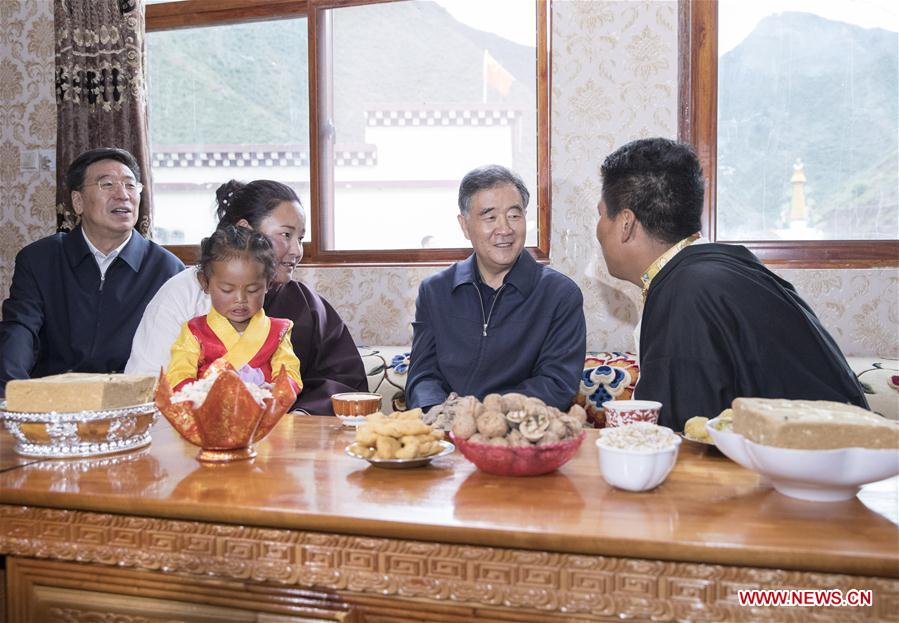
Wang Yang, a member of the Standing Committee of the Political Bureau of the Communist Party of China (CPC) Central Committee and chairman of the National Committee of the Chinese People's Political Consultative Conference (CPPCC), visits a Tibetan family in Qamdo, southwest China's Tibet Autonomous Region, Aug. 24, 2018. Wang made an inspection in Tibet recently. (Xinhua/Wang Ye)
LHASA, Aug. 26 (Xinhua) -- China's top political advisor Wang Yang has called for more efforts in poverty relief and religious work to ensure prosperity, development and lasting stability in Tibet Autonomous Region.
Wang, a member of the Standing Committee of the Political Bureau of the Central Committee of the Communist Party of China (CPC) and chairman of the 13th Chinese People's Political Consultative Conference (CPPCC) National Committee, made the remarks during an inspection in Tibet from Friday to Sunday.
More should be done to advance targeted poverty relief and accelerate the paces of building a moderately prosperous society in all respects, Wang urged.
Winning the tough battle of eliminating poverty in Tibet is of great significance to people's well-being and ethnic solidarity, he said.
Priority should be given to improving the quality of poverty relief, with a reasonable sequence of work and no hastening to meet deadlines, he demanded, noting that the long-term effects of relief work should be valued.
The current standard of poverty relief must be strictly implemented, he said.
Wang stressed combining poverty relief with ecological protection, saying ecological relocation work in high-altitude mountainous areas should be proceeded steadily and in an orderly manner.
The national ecological security shield must be strengthened, he said.
Meanwhile, Wang urged improved and innovative temple management and called for advancing anti-separatism efforts.
Wang noted that the work regarding religious affairs is significant to the social stability and prosperity of Tibet in the long term, urging preparedness and precautions for danger in times of safety.
He called for the adherence to the Party's basic principles in the work and the direction of the "sinicization" of religions in China, as well as more efforts to better integrate Tibetan Buddhism into the socialist society.
Wang asked the religious circle to firmly uphold the leadership of the CPC, inherit and promote patriotism, and be courageous to battle all separatist elements, in order to further protect the national reunification, ethnic unity and social stability.
He also asked for better cultivation of talent in religious work and better conduct and management within the religious circle, so as to preserve the good image of Buddhism, and push forward the healthy development of Tibetan Buddhism.



